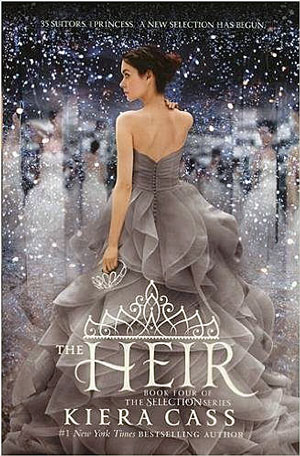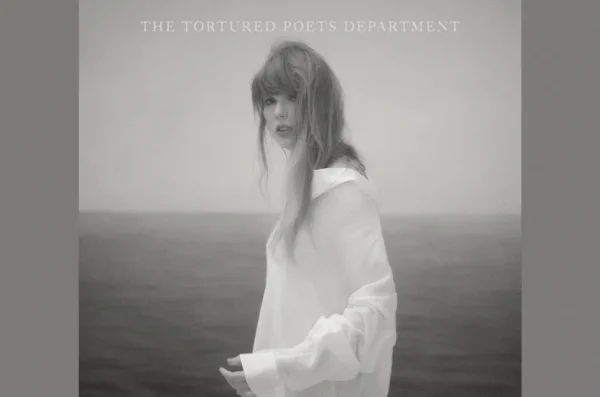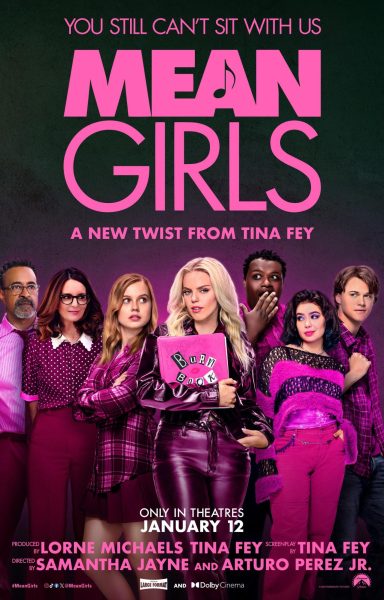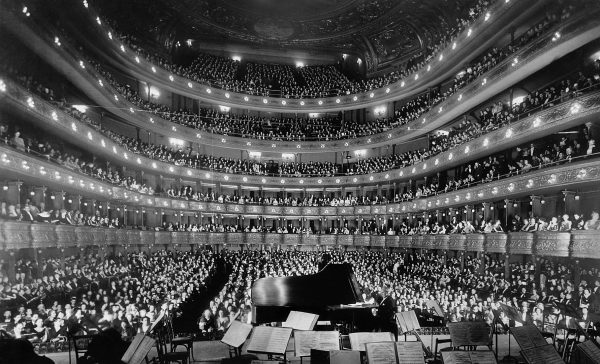The Heir: A Review

November 6, 2020
 The Heir (The selection): How A Bad Book Ruined A Good Series
The Heir (The selection): How A Bad Book Ruined A Good Series
Throughout history you can often find book series that– although mediocre– had consistencies. A great example of this was the 39 Clues and Mortal Instruments. Readers had a strong idea of what to expect in the next installments of books. What makes a book series so special to me and other readers is that you get more of what you love. You see your favorite protagonist evolve and adapt to the new challenges that are thrown at him/her in every new installment. But, The Heir has achieved something of a milestone for me: successfully ruining an entire series. So what made me and so many other fans of the series have such a low reception to this book? Most importantly of all: was it justified?
The story picks up twenty years after the third book ended, with our main protagonist being America and Maxon’s daughter, Eadlyn. The country of Illea is in a not so great place, with riots and protest running rampant throughout the nation. (side note: hmm, sounds familiar). Apparently, the citizens of Illea actually liked the caste system which separated the poor from the rich with numeral ranking, and they are now angry at Maxon for doing away with it. With the throne and his reputation on the line, Maxon makes a last ditch effort to keep himself in power. He tries to distract the public by deciding to hold a bachelor-like competition where the winner gets to marry his daughter. Unsurprisingly, Eadlyn is very against this idea, but luckily Maxon successfully threatens and coerces her into it. He tells his daughter:“Eadlyn you’re being irrational” and “this is good for the public”(Class pg 14-20).
The 35 “suitors” are then chosen at random. One of them ends up being Eadlyn’s childhood enemy, Kile Woodwork, or America’s best friend’s son. The thirty five suitors ride through a parade, where they get jeered and hit with rotten food, because that’s how much the public detests the royal family and everything it stands for. We see how ruthless Eadlyn is when she goes on a date with two boys and stands both of them up. Plus, she intends to eliminate both from the competition the very next day. This goes on for quite some time, with her eliminating people for no reasons other than for her joy. Understandably, the public gets angry about this behavior and demands that she actually goes on a real date with one of the boys. She decided to “fake” a date by using her good looks and charm to seduce Kile, her childhood enemy, to get revenge on him. With the clandestine camera set up by her earlier that day, she records herself making out with Kile. Afterwards, she promptly decides to send the photo to every big newspaper and gossip magazine.
For some unknown reason, the public likes this approach and gives Eadlyn praise for “warming up” to the contestants. Unfortunately, karma catches up pretty quickly to her, because her next date with a boy named Jack goes much worse. He tries to openly sexually-assault her in a movie theater. She has the police “handle” Jack for his crime and has him deported as punishment. Hmm, could have gone better.
Sensing a hostile mood in the castle, Kile proposes to host a cooking competition to loosen the tension. Having lived his whole life in abject wealth, Kile easily wins the competition. His easy victory brings on suspicion on whether or not he planned this ahead of time to impress Eadlyn. So, a boy named Burke decides to take matters into his own hands and strikes Kile and a fellow suiter named Henri. Burke is promptly sent home and deported as well.
Eadlyn is so emotionally-distraught with how the competition is turning out and jealous with her brother’s romance that she tries to sabotage her brother’s own romance by sewing distrust between him and his girlfriend. Luckily, he doesn’t fall for her tricks and runs off with his girlfriend (AKA princess of the French monarchy) to France to seek refuge. Her mom is so overwhelmed by the recent events that have been happening that she has a heart attack. The story closes with America (her mom) slowly dying.
Kierra Class’s bold new approach to reinvigorate the series was met with subpar reception. It dropped from respectable 4.2 stars to a mere 3.8, and many fans refused to acknowledge this book as canon. I think the biggest gripe that many fans had with this book was it’s identity. The main idea that this book tried to explore was political commentary. The cracks start to form with political commentary when this idea is only embraced on a surface level. If you cut a few chapters from this book, it wouldn’t be different from any other book in the series. It’s lazy writing to use generic events like protests and riots as the focal point of the plot; they doesn’t improve the story at all and are only there to act as a filler. There is very little depth in this book because so much of it is focused on the social unrest aspect, so in turn the concept and purpose of the plot is almost nonexistent to the point where you couldn’t pin a theme on the book even if you wanted to. In short, this book was banking on the fact that nostalgia will be enough to get fans excited about reading this book. That is the precise reason why this book felt like a carbon copy of the first two books.
My personal biggest grievances with this book was its characters and, more specifically, how they’re written. Characters have never been a strong suit with this series, but this book set a new low. Most characters represent a different political argument, but this book doesn’t take the time to flush any of them out, so in turn we don’t really connect with any of them. Several of the boys are– for inexplicable reasons– sexual harassers, and others are straight up bullies. Reading about these characters does nothing to improve the story, and in fact it takes away from the little enjoyment that I had while reading this book.
It doesn’t help that Eadlyn herself is one of the most unlikable characters I had the misfortune of reading about. She is very distant from the boys and often ignores them when they try to talk to her. Like her dad, she uses her charm to manipulate people to get what she wants. She even admits to Kile that the only reason he’s around is for his physical appearance. In the text, it states: “I like having you here, but I’m not in need of a soul mate. You can be quiet and go back to kissing me, or you could leave” (p177). The author does a dreadful job of portraying her as a remotely likable character. She doesn’t do anything that makes the reader think of her as a good person throughout the book. All she does is play with the boys, feeling like a spoiled girl, which she is.
Lastly, the action and pacing of the plot is mediocre at best. The book decides to spasmodically jump to different events and time. One or two chapters could take a day, and others a few months. It makes the reader question over what period of time the book is taking place. For example, the selection ceremony and the parade are supposed to be a few weeks apart, but the book covers this in a mere two chapters. But the whole third act, which is devoted to a welcome party, takes up about ⅕ of the ending. Also, the plot has so much exposition dialogue that it bores you to death. As a reader, I want to see why Eadlyn is a good character, not be told by some random maid in the book. It makes the plot look cheap when the author doesn’t explain why the characters act in a specific way. In fact, it makes them look shallow and stereotypical.
There are some redeeming qualities to this book, though. For example, Eadlyn’s brother Ahren is a decent person, and tries his best to guide his sister throughout the selection process. In the end, by leaving the castle, he sends his sister a message that she should and will do better. Plus, at times, the political commentary can be fun to read about, as you connect how similar our world is to Illea. It makes you think about the world we live in.
In conclusion, The Heir is a convoluted book trying to balance too many ideas and characters in a short 300 page story. It lacks the necessary substance that made the first three books so memorable. The ideas and characters are all very generic and forgettable with only some redeeming qualities sprinkled in. It also doesn’t make itself stand out, since it waters down the events and plot material from the original trilogy. For these reasons, my fellow fans and I dislike this book a great deal. http://https://www.google.com/url?sa=i&url=https%3A%2F%2Fwww.amazon.com%2FHeir-Selection-Kiera-Cass%2Fdp%2F0062349864&psig=AOvVaw3gTTCJxESrafcR0CkIhBaF&ust=1604764077132000&source=images&cd=vfe&ved=0CAIQjRxqFwoTCIDS45ii7uwCFQAAAAAdAAAAABAD









